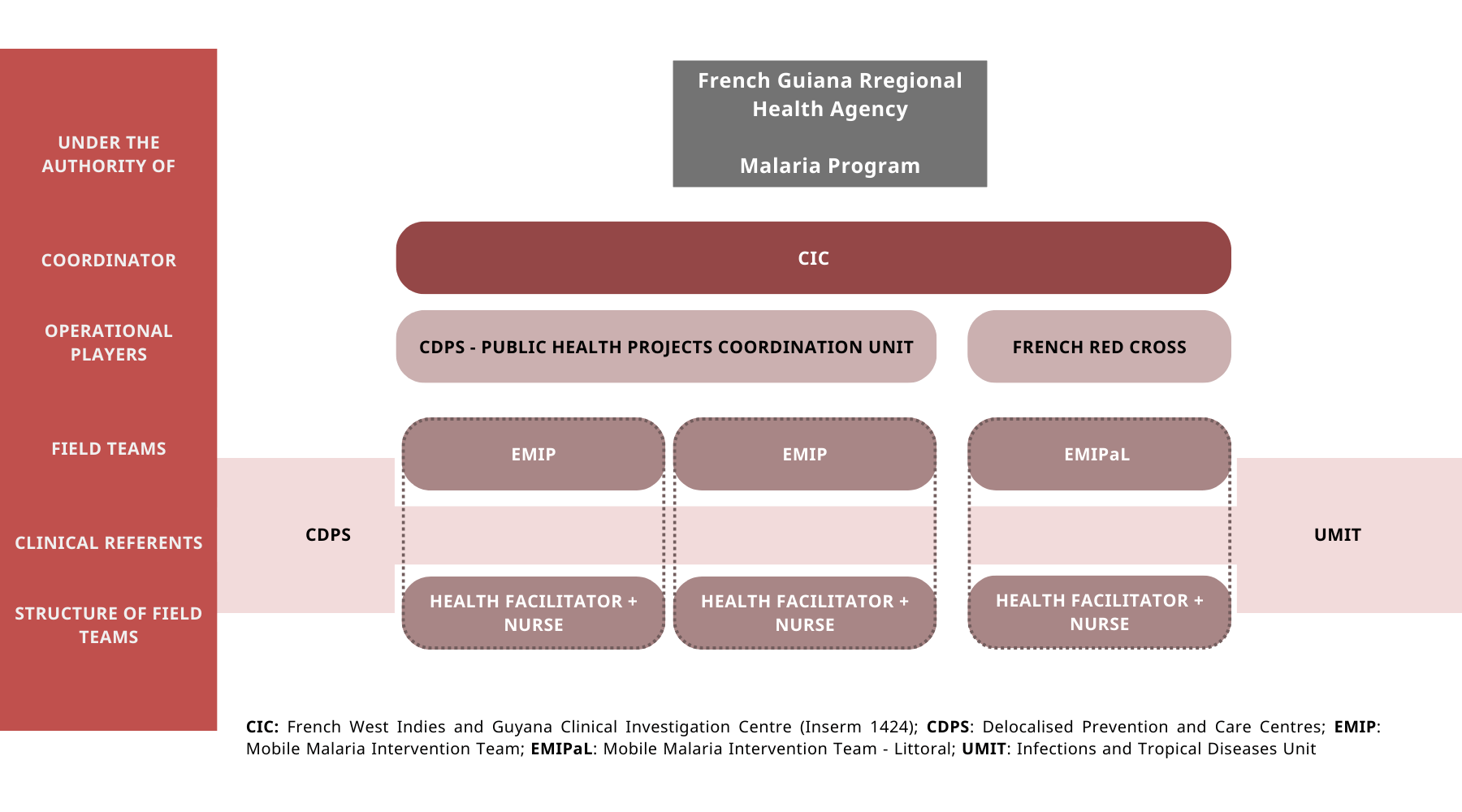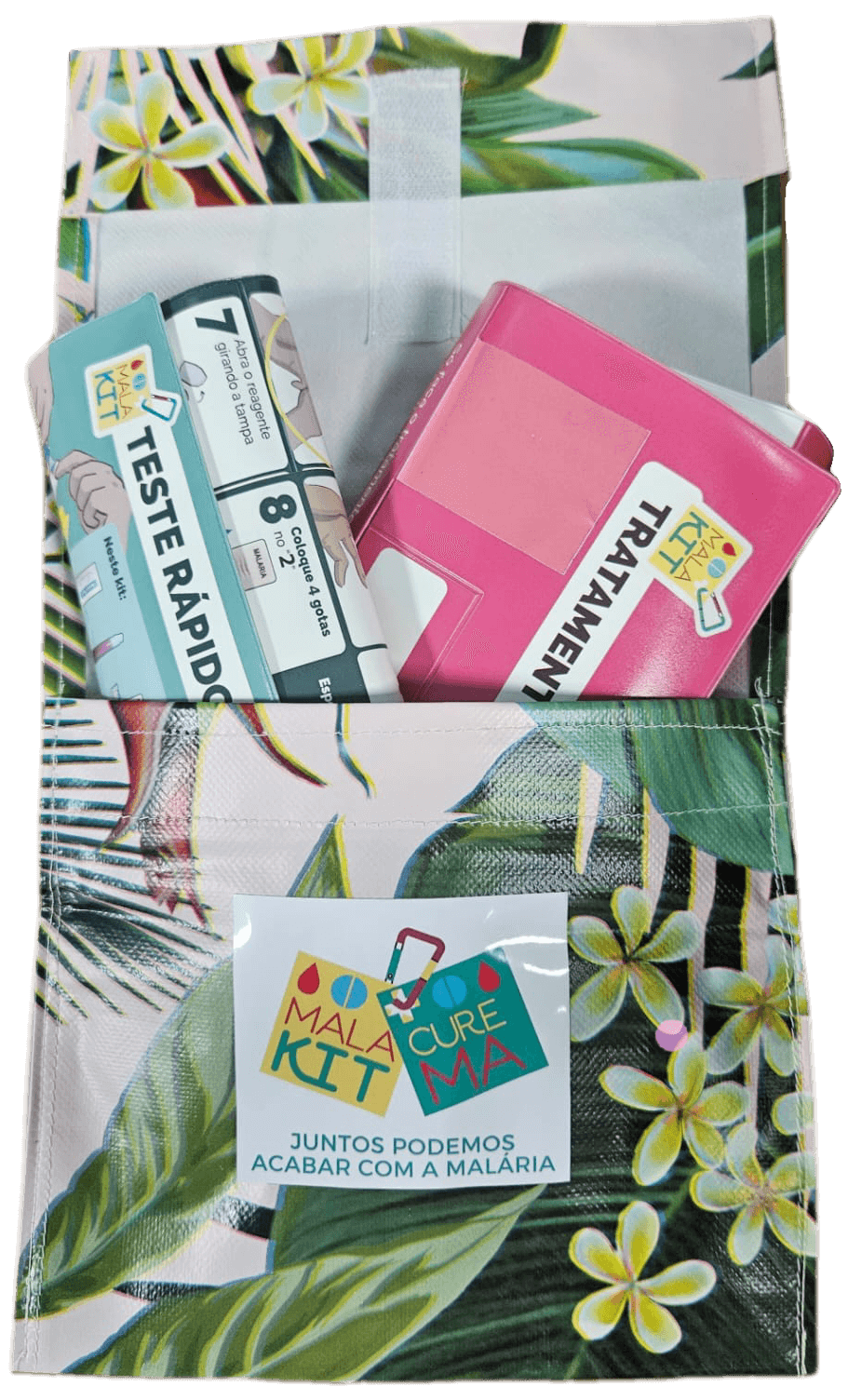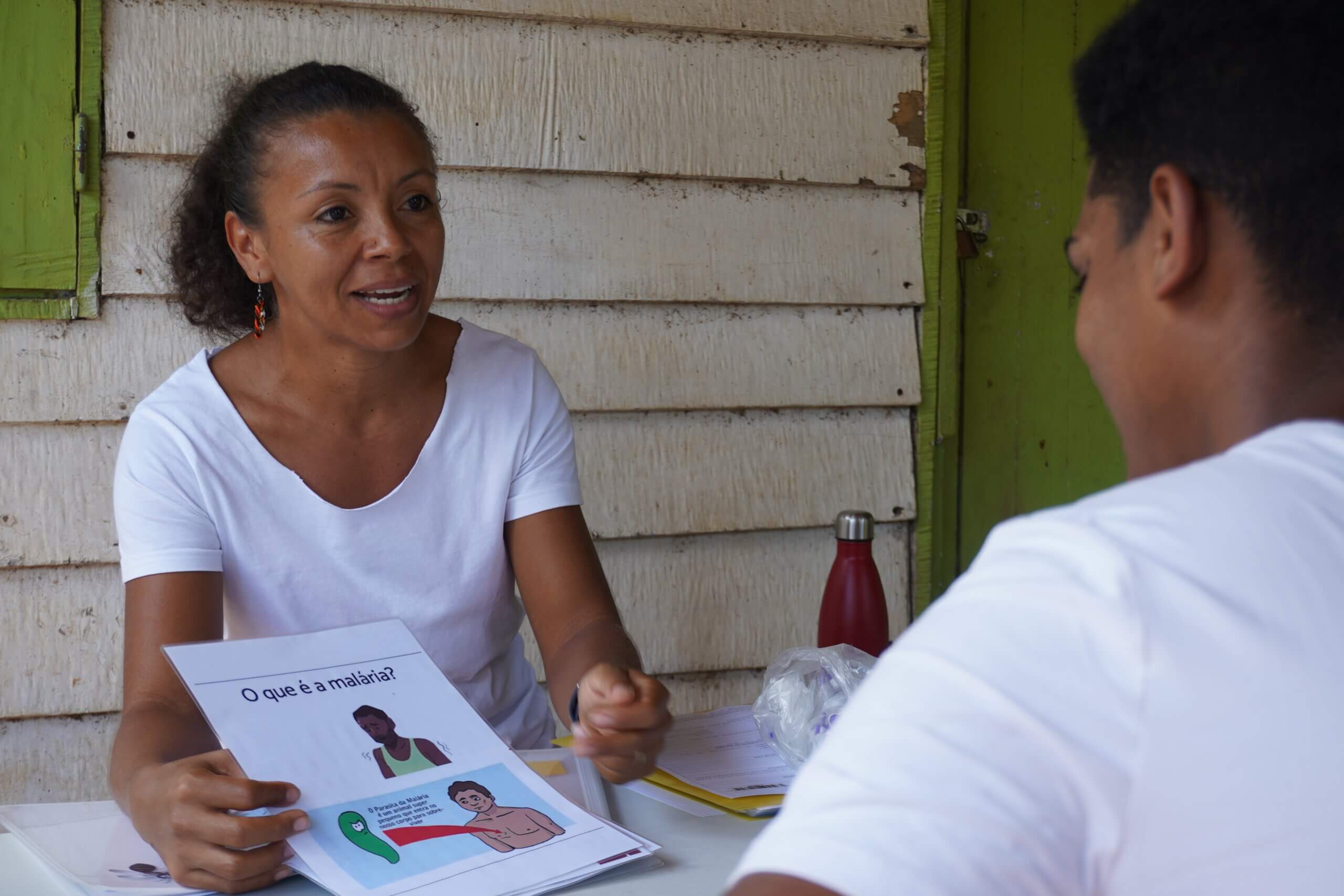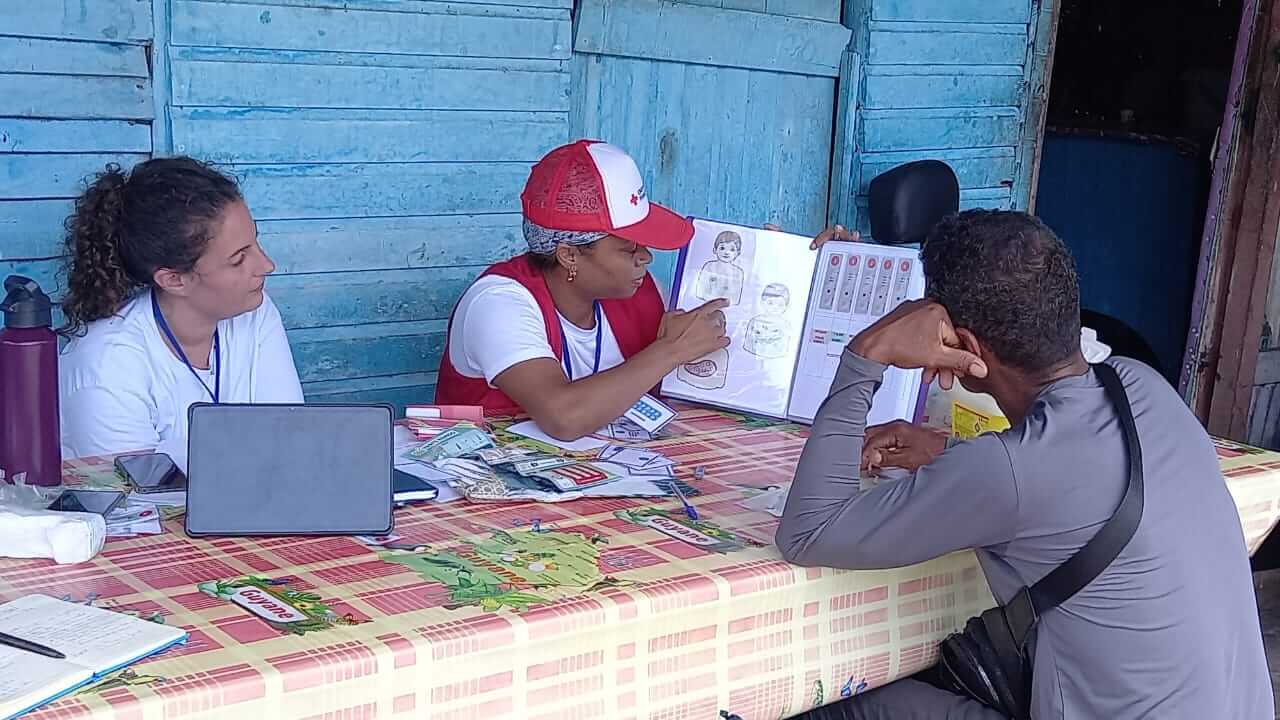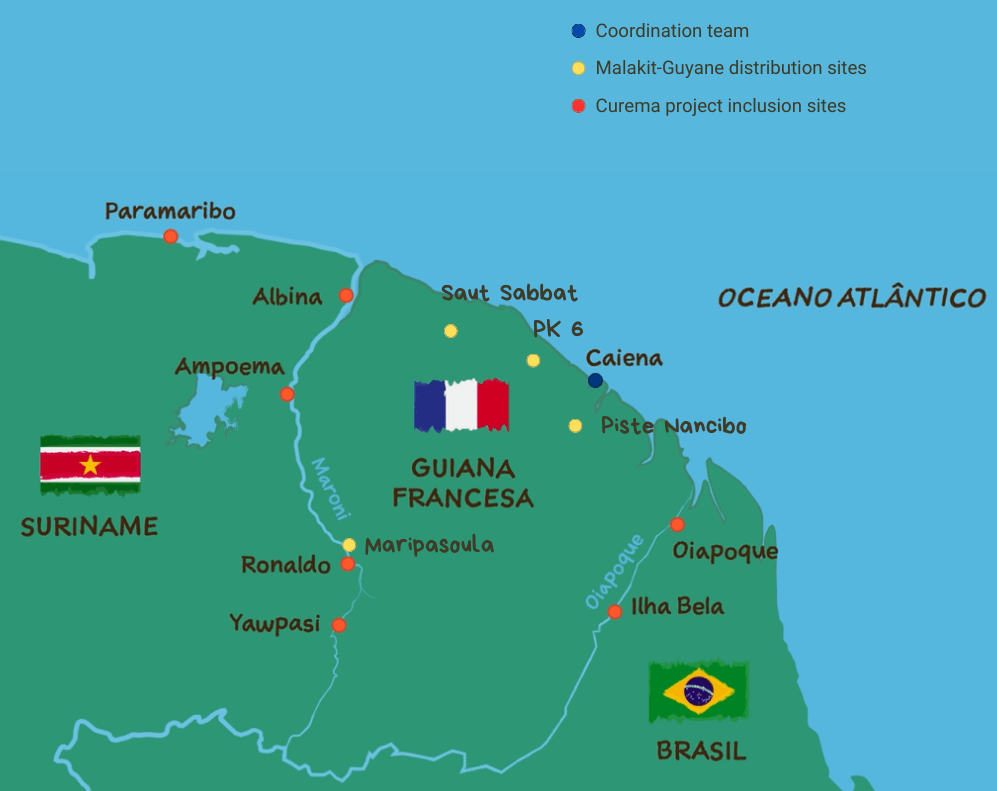After many fruitful meetings with health authorities and local stakeholders, the Malakit strategy has been deployed in French Guiana since July 2024!
The Malakit strategy has thus been integrated as one of the malaria control tools in the regional Malaria Elimination Program.
Which players?
The activities are made possible by the collaborative efforts of several players, notably the French Red Cross and the Delocalised Prevention and Care Centers.
The Malakit-Curema team, affiliated to the French Guiana and French West Indies Clinical Investigation Center, is coordinating a transition phase aimed at supporting operational players – the French Red Cross and Delocalised Prevention and Care Centers – intransferring skills and ensuring the sustainability of the intervention
What is deployed?
The strategy deployed retains fidelity to the initially conceived research project: the target population, the information, education and communication tools and the kits are currently unchanged.
The beneficiaries of the action are individuals:
- ≥ 18 years old
- involved in activities related to goldmining far from the health care system
- not having symptoms of malaria at the time of inclusion in the program
- able to follow a 30-minute training session involving a self-test.
Malakits are distributed by Portuguese-speaking mobile teams carrying out health education activities and training beneficiaries in the use of the malakit device prior to distribution.
Which adaptations?
To enable this strategy to be deployed as a public health initiative in French Guiana, a number of adaptations have been made to the strategy to bring it into line with French regulations and the non-research framework.
For example:
- Each of the EMIP and EMIPaL teams is composed of two people: a nurse and a health facilitator:
- The health facilitator is responsible for carrying out the health education activity and training the participant in the use of the malakit.
- The nurse checks that there are no contraindications to the treatments contained in the kit, makes the link with the healthcare system in the event of a symptomatic patient or a positive Rapid Diagnostic Test (RDT), and delivers the kit under medical prescription as part of the task delegation.
- A simplified questionnaire, to be filed on a tablet, enables data to be collected and intervention indicators to be monitored.
Where ?
Mobile Malaria Intervention Teams carry out missions to gold miners logistical bases at different occurrences following the flow of this population in the area. The aim is to reach as many beneficiaries as possible.
Intra-hospital distribution is currently being tested, to enable the target population to receive malakits before leaving hospital and departure for isolated sites.
The map below shows the current distribution locations, but is considered to be evolving.
Our objective:
To contribute to the international toolbox of strategies that can be mobilized for the control and elimination of malaria in isolated, mobile and clandestine populations, often suffering from residual malaria, which represents a real challenge for those involved in the fight against malaria in many countries around the world.
